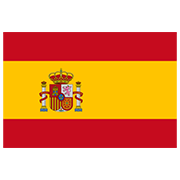Fiscal subject related
In general, regulation states that the system is established for issuing e-invoices by providing exact information on the issuance, delivery, acceptance, and payment times of the same invoice. The whole system will be managed by the Spanish State Tax Administration (AEAT). The electronic invoice system will be made up of a set of private electronic invoice exchange platforms and a public electronic invoicing solution, which will also fulfill the function of an invoice repository. Also, the AEAT will develop a free application or form that, under certain conditions and requirements, will be made available to small businesses and professionals to allow these operators to generate electronic invoices and make them available to counterparties and the AEAT. If we talk about formats, the regulations state that an electronic invoice shall be understood as a computer message of a structured nature adjusted to the semantic data model EN16931 of the European Committee for Standardization and under certain syntaxes (XML message of the CEFACT/ONU, ISO/IEC, EDIFACT). Aldo, an electronic signature will be required. Electronic invoicing may be done through private electronic invoicing platforms, through the public electronic invoicing solution, or through a combination of both.
If we consider the timeline, the Regulation states that it will enter into force 12 months after its publication in the Official State Gazette; however, its entry into force is subject to obtaining the community exception of articles 218 (LAW 11857/2006) and 232 of Directive 2006/112/CE of the Council, of November 28, 2006 (LAW 11857/2006), relative to the common system of value added tax.
For the subjects, certain limits are predefined. More precisely, these obligations will apply to businessmen whose annual turnover is less than six million euros 36 months after the publication of the royal decree in the Official State Gazette and to professionals whose annual turnover is less than six million euros 48 months after the publication of the royal decree in the Official State Gazette. Until the expiration of the mentioned periods, the provision of information on the invoice statements will be voluntary. The Regulation can be found on the website of the Ministry of Telecommunications and Digital Infrastructures.
Other news from Spain
How Can Merchants (Taxpayers) Approach New Fiscalization and New Deadlines, and What are Possible Solutions to Choose to be in Compliance with the Fiscalization Requirements in Spain?
 Spain
Author: Nikolina Basić
Spain
Author: Nikolina Basić
Spain has officially postponed the VeriFactu obligation with Royal Decree 254/2025, extending the compliance deadline to January 1, 2026 for corporate taxpayers and July 1, 2026 for all others. Read more



TLv6 Implementation Marks Significant Shift in EU’s Trust List Format
A new EU Trust List format, TLv6, will officially replace TLv5 in May 2025 as part of the updated eIDAS Regulation (EU 2024/1183). It introduces key technical changes like a new URI field, updated signature format, and optional phone number support. Organizations must update their systems to avoid signature validation failures and service disruptions, as TLv5 will no longer be valid once TLv6 take... Read more



Verifactu Fiscalization Obligatory in Spain Finally Postponed?
 Spain
Author: Nikolina Basić
Spain
Author: Nikolina Basić
The Spanish Council of Ministers has approved a Royal Decree that delays the general implementation of the VeriFactu certified billing system to January 1, 2026, while keeping the July 29, 2025 deadline for POS software providers. It also exempts companies using the Immediate Supply of Information (SII) for self-billing from VeriFactu requirements. The decree is published today in the Official St... Read more



TEACH Issued VAT Rounding Rules in Spain for Simplified Invoices
 Spain
Author: Nikolina Basić
Spain
Author: Nikolina Basić
Spain's Central Economic-Administrative Court (TEAC) has clarified VAT rounding rules for simplified invoices, favoring global rounding over product-by-product rounding when it prevents tax distortions. This ruling arose from a dispute involving a retailer that rounded VAT per individual product, which was rejected by the Spanish Tax Agency in favor of cumulative, global rounding. Read more



B2B e-Invoicing Updates in Spain
 Spain
Author: Nikolina Basić
Spain
Author: Nikolina Basić
Spain is advancing B2B electronic invoicing with a public consultation to refine compliance under the "Crea y Crece" law, requiring businesses to use the Universal Business Language (UBL) format and submit a digital invoice copy to the public platform. All B2B transactions, previously voluntary for some, must now comply, with large companies required to adopt e-invoicing one year after the Ministerial Order’s approval and SMEs two years later. . Read more



VIDA regulation adopted—what does that mean for business?
The EU adopted the VAT in the Digital Age (ViDA) package on March 11, 2025, introducing major changes to the VAT system starting January 1, 2027. Key reforms include mandatory digital VAT reporting by 2030, new VAT collection rules for online platforms, and expanded One-Stop Shop (OSS) registration to simplify cross-border compliance. Additional measures, such as mandatory e-invoicing, phasing out... Read more



Fiscalization in Spain: What is event logging?
 Spain
Author: Nikolina Basić
Spain
Author: Nikolina Basić
Spain's fiscalization system now mandates that all POS-billing systems (SIF) maintain an automated event log to capture and save data in real-time, ensuring compliance. This requirement applies specifically to non-verifiable invoice systems, while the "VERI*FACTU" variant remains exempt. Read more


